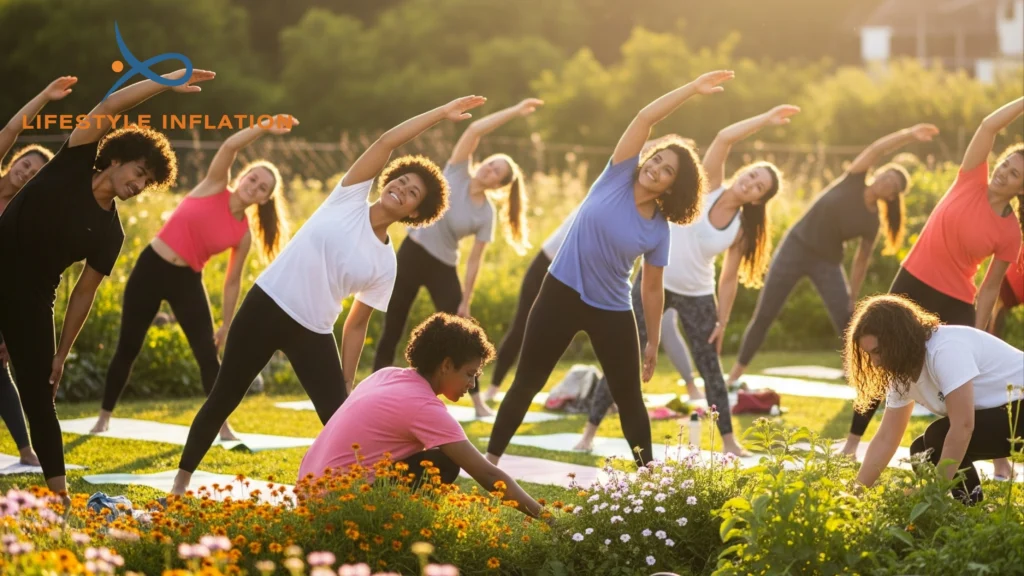Discovering a fulfilling and lasting pursuit is more than just a pastime; it’s a key to long-term happiness, health, and growth. A well chosen lifetime activity is something that should hold a person’s interest for a long time, offering much more than momentary entertainment. It enriches daily life with personal fulfillment, purpose, and mental clarity. From outdoor adventures to creative pursuits, these lifelong passions have the potential to shape your identity and elevate your quality of life. Let’s explore how to find, maintain, and truly enjoy these transformative activities.
How to Find a Lifetime Activity That Matches Your Passion
Finding the right lifetime activity starts by examining what excites and motivates you regularly. Experts in behavioral science often highlight the importance of following your natural interests. If you find joy in movement, hiking, yoga, or dance could be a fit. If you’re intellectually curious, writing, reading, or even earning an associate degree in psychology can turn into a lifelong learning journey. The key lies in knowing how to find a lifetime activity that resonates with your values, lifestyle, and dreams. A fulfilling activity aligns with your core passions and evolves with your circumstances, becoming one of the best lifetime activities for adults in the long run.
Benefits of Choosing a Lifetime Activity You Truly Enjoy

The benefits of choosing a lifetime activity go beyond temporary fun. They improve physical health, emotional stability, and even your social life. Research from health institutes in the U.S. shows that adults who stick to meaningful hobbies report higher levels of happiness and fewer signs of depression. According to the National Institute on Aging, engaging in creative or physical activities can significantly enhance emotional and mental well-being among older adults. and fewer signs of depression. Engaging in something you genuinely love strengthens your emotional well-being, brings structure to your day, and offers continual self-improvement. When you commit to an interest over years, you gain long-term enthusiasm and a reliable source of comfort during life’s ups and downs. Whether it’s music, sport, or a niche skill, consistent engagement boosts every part of your life.
Hobbies That Last a Lifetime: What Makes Them Special?
What distinguishes hobbies that last a lifetime is their ability to grow with you. These adaptable activities meet you where you are, regardless of your age or fitness level. For example, painting can be just as fulfilling at 15 or 75, allowing for expressive evolution and skill development. Writing is another perfect example. Over time, your style and voice change, but the joy of creating stories or journaling remains intact. Activities that offer long-term emotional resilience through hobbies often come with new layers of discovery, making them sustainable over decades. It’s not just the act but the emotional and intellectual flexibility they provide that makes them timeless.
Common Characteristics of Lifelong Hobbies
| Hobby Type | Adaptability | Growth Over Time | Accessibility |
|---|---|---|---|
| Painting | High | Skill builds with time | Very Accessible |
| Hiking | Medium | Physical stamina improves | Moderately Accessible |
| Writing | High | Style and depth evolve | Very Accessible |
| Playing Guitar | High | Technique develops | Accessible with practice |
Physical and Mental Benefits of Lifelong Hobbies

The physical and mental benefits of hobbies are undeniable. Many long-term fitness activities like yoga, swimming, or hiking help you maintain physical fitness while also providing avenues for stress relief. Engaging in these actions regularly contributes to weight management, cardiovascular health, and better sleep. But that’s only half the equation. These same activities are instrumental in supporting mental wellness, enhancing focus, and reducing symptoms of anxiety and depression. Mental well-being through lifelong activities often manifests in improved memory, emotional stability, and a more optimistic outlook on life.
Sample Physical and Mental Benefits Table
| Activity | Physical Benefits | Mental Benefits |
| Yoga | Flexibility, strength | Stress relief, mindfulness |
| Hiking | Cardiovascular health | Mood enhancement, clarity |
| Swimming | Full-body workout | Relaxation, reduced anxiety |
| Dancing | Coordination, endurance | Joy, social connection |
Creative Pursuits That Promote Self-Discovery and Fulfillment
Few experiences are as transformative as creative pursuits. Whether it’s playing guitar, sketching, or creative writing, these activities invite deep self-expression and a unique self-discovery journey. Studies have shown that people engaged in creative hobbies report higher life satisfaction and greater personal fulfillment. These hobbies don’t just entertain; they help you understand who you are and give form to abstract thoughts and feelings. Creative work often becomes a mirror reflecting your growth over time. For instance, beginners may strum simple tunes, but a decade later, they might compose original pieces, exemplifying the power of hobbies that improve with time.
Outdoor Adventures for Long-Term Health and Happiness
Americans are increasingly turning to outdoor adventures as a way to disconnect from digital overload and reconnect with themselves. Activities like hiking, kayaking, or rock climbing offer fresh air, movement, and meaningful experiences in nature. They not only support physical fitness but also deliver profound stress relief activities. Being in natural settings has been proven to reduce cortisol levels and enhance mood. Moreover, these experiences often lead to travel, exploration, and learning, helping you build a richer life story. Consistent exposure to the outdoors fuels self-improvement paths that can last a lifetime, forming habits that contribute to a long, healthy existence.
Social Hobbies That Build Friendships and Community

Human beings are wired for connection, and that’s why social interaction through hobbies can be so powerful. Whether it’s joining a gardening club, participating in book discussions, or attending dance classes, these activities promote community engagement and building friendships through hobbies. The social connection nurtured in these environments improves not just emotional health but cognitive function as well. Even simple acts like shared laughter or casual conversations can uplift your mood and offer a sense of belonging. These experiences create bonds rooted in shared interest, making the hobby more enjoyable and long-lasting. It’s easier to stay committed when you’re supported by a circle of like-minded individuals.
Activities That Support Emotional Growth and Identity
Lifelong interests do more than entertain; they contribute to deep emotional growth and identity shaping. Committing to an activity for years builds resilience, sharpens focus, and increases confidence. This is especially true for expressive hobbies like writing, dance, or public speaking, where emotional clarity often improves with practice. Over time, these hobbies for identity development become ingrained in how you see yourself and how others see you. They help construct a narrative around your values, achievements, and personal style. Such internal consistency fosters strength during difficult periods and allows you to process complex emotions through creativity and expression.
Structured Programs That Encourage Teen Development

Teens benefit immensely from structured youth programs that introduce them to developmental activities for teens like sports, drama clubs, or community service. These frameworks offer stability, guidance, and opportunities for skill development during critical years of growth. Programs such as those aimed at structured programs for troubled teens are designed not just to correct behavior, but to support passion-based careers and build long-term confidence. According to the Child Mind Institute, well-structured youth programs help teens improve emotional regulation, build resilience, and enhance their social and academic performance. Early involvement in such programs increases the chance of discovering purpose-driven hobbies that lead to a stronger identity and lifelong personal growth.
Can Hobbies Improve Longevity and Life Quality?
Recent studies from institutions like Harvard and Stanford suggest that yes, hobbies can improve longevity. Engaging in long-term activities such as walking, gardening, or creative writing has shown a direct link to improved mood and better health. According to Harvard Health, people who regularly enjoy hobbies tend to live longer, experience lower stress levels, and maintain stronger memory and focus. These activities also lower the risk of chronic illnesses and cognitive decline. People who stay mentally and physically engaged are often more satisfied with life. So, adding even a small hobby to your routine can lead to real quality of life improvement over time.
Psychology and Hobbies: The Link to Personal Growth
Pursuing a psychology associate degree for personal growth helps people understand how hobbies affect the mind. It builds awareness of emotional triggers, mental patterns, and how regular activities impact well-being. According to the American Psychological Association (APA), hobbies play a vital role in reducing stress, supporting self-regulation, and enhancing emotional strength over time. This knowledge helps people choose better hobbies based on their personality, emotional needs, and life goals. Whether it’s journaling, painting, or solving puzzles, every hobby offers unique intellectual stimulation and boosts mental wellness through lifelong activities. Understanding this connection deepens the purpose behind the hobby, turning it into a powerful tool for self-growth and healing.
How to Stay Consistent and Engaged With Your Hobbies
Maintaining interest over time can be challenging, which is why learning how to stay consistent with hobbies is crucial. One proven method is to align your hobby with clear, measurable goals. For instance, setting a goal to learn five new guitar chords each month keeps things fresh. Additionally, joining a club or forum fosters social connection, ensuring you’re surrounded by people who share your passion. Use technology to your advantage as well; habit-tracking apps or creative platforms help reignite your excitement. The goal is to build routines that support how to stay engaged with a hobby despite life’s distractions.
Conclusion
Choosing wisely is essential because a well chosen lifetime activity is something that should hold a person’s interest for a long time. Whether it’s rooted in movement, creativity, connection, or learning, your hobby becomes a lifelong companion—enriching every season of your life. Let it grow with you, challenge you, and support your journey toward becoming your best self.
Is it true that a well-chosen lifetime activity is something that should hold a person’s interest for a long time?
Yes, it’s true. A well-chosen lifetime activity offers lasting enjoyment, growth, and personal engagement over many years.
What is meant by the term lifetime activity?
A lifetime activity is a hobby or pursuit that remains enjoyable and beneficial across different stages of life, like hiking or painting.
Is true or false the term fitness refers to the quality of physical and mental soundness?
True. Fitness includes both physical health and mental well-being, making it essential for a balanced and healthy life.
How can I stay consistent with a lifetime activity?
Set small goals, track progress, and join communities to stay motivated and enjoy long-term engagement with your hobby.
Can lifetime activities really improve mental health?
Yes, regular engagement in meaningful activities reduces stress, boosts mood, and supports long-term emotional well-being.


